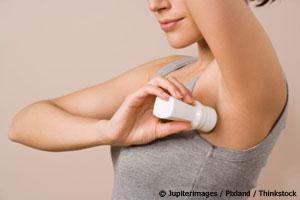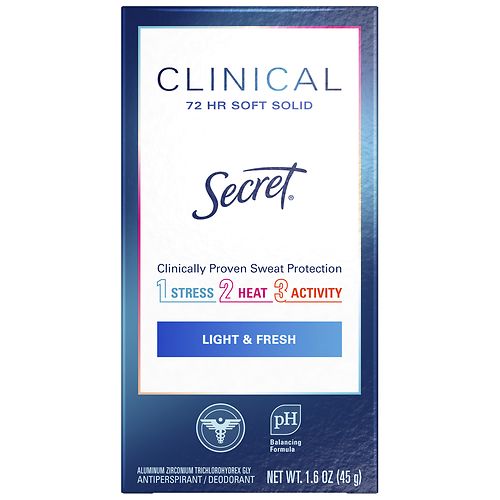Are Aluminum-Containing Antiperspirants Contributing To
Breast Cancer In Women?
October 17, 2011
By Dr. Mercola
October is breast cancer awareness
month and an ideal time to learn all you can about the steps you can take to
prevent the most common cancer affecting women in the developed world.
The information that follows will be much different from
what is often spouted from anti-cancer organizations like the American Cancer
Society (ACS), as -- unlike ACS -- I
have no financial ties to both makers of mammography equipment and cancer
drugs.
My advice for cancer prevention is much more
straightforward, involving simple lifestyle strategies that virtually everyone has the
power to make.
All you need to become empowered to make these
cancer-preventive changes is knowledge, and that is what I seek to give
you by the time you finish reading this comment … I suggest you not only learn
this information for your own benefit, but also share it with other women in
your life as well.
Using the Wrong Antiperspirant May Influence Your Breast
Cancer Risk
Putting on antiperspirant is a routine part of most people's
day, and you may not think much about it. But here's why you should: if you use
one containing aluminum,
you could be increasing your risk of breast cancer.
Antiperspirants work by clogging, closing, or blocking the
pores that release sweat under your arms -- with the active ingredient being
aluminum. Not only does this block one of your body's routes for detoxification
(releasing toxins via your underarm sweat), but it raises concerns about where
these metals are going once you roll them (or spray them) on.
Research, including one study published this year in the Journal of Applied Toxicology, has shown
that the aluminum is not only absorbed by your body, but is deposited in your
breast tissue and even can be found in nipple aspirate fluid a fluid present in
the breast duct tree that mirrors the microenvironment in your breast.
Researchers determined that the mean level of aluminum in nipple aspirate fluid
was significantly higher in breast cancer-affected women compared to healthy
women, which may suggest a role for raised levels of aluminum as a biomarker
for identification of women at higher risk of developing breast cancer.
Cancer-Causing Aluminum From Antiperspirant May Collect
in Your Breasts
In a 2007 study published in the Journal of Inorganic
Biochemistry, researchers tested breast samples from 17
breast-cancer patients who had undergone mastectomies. The women who used
antiperspirants had deposits of aluminum in their outer breast tissue.
Concentrations of aluminum were higher in the tissue closest to the underarm
than in the central breast.
Why is this a glaring red flag?
Aluminum is not normally found in the human body, so
this study was a pretty clear sign that the metal was being absorbed from
antiperspirant sprays and roll-ons. Please note that aluminum is typically only
found in antiperspirants. If you are using a deodorant-only product it is
unlikely to contain aluminum but might contain other chemicals that could be a
concern.
Aluminum salts can account for 25 percent of the volume of
some antiperspirants,
and a review of the common sources of aluminum exposure for humans found that
antiperspirant use can significantly increase the amount of aluminum absorbed
by your body. According to the review, after a single underarm application of
antiperspirant, about .012 percent of the aluminum
may be absorbed.
This may not sound like much until you multiply it by one or
more times a day for a lifetime, which adds up to massive exposure to aluminum
-- a poison that is not supposed to be in your body, and may be more toxic than
mercury. Aluminum salts can mimic the hormone estrogen, and chemicals that
imitate that hormone are known to increase breast cancer risk.
Animal studies have also found that aluminum can cause cancer. Aside from vaccinations,
your antiperspirant may be your largest source of exposure to this poisonous
metal!
You Need to be Careful with Natural Deodorants, Too
There are many brands of aluminum-free deodorants on the
market, and many of these are safe alternatives. And as a general rule,
deodorants tend to be less problematic than antiperspirants, as they work by
neutralizing the smell of your sweat and by antiseptic action against bacteria,
rather than by preventing sweating. As such, some deodorants do not contain any
aluminum, but you've got to be careful about this. While many claim to be
aluminum-free, they are referring to aluminum chlorohydrate, aluminum chloride,
aluminum hydroxybromide or aluminum zirconium, which are the types most
commonly used in antiperspirants and deodorants.
"Crystal" deodorant
stones, which are a popular natural deodorant alternative often used
by health-conscious shoppers looking to avoid aluminum, often claim to be
aluminum-free, but some actually contain a different type of compound known as
an alum, the most common form being potassium alum, also known as potassium aluminum
sulfate.
Potassium Alum or Ammonium Alum are natural mineral salts
made up of molecules that are too large to be absorbed by your skin. They form
a protective layer on your skin that inhibits the growth of odor-causing
bacteria. These deodorants are recommended by many cancer treatment centers,
but while this may be a better alternative to most antiperspirants and
deodorants on the market, it is not completely aluminum-free.
So be sure, when choosing a natural deodorant alternative,
that it truly is made of toxin-free ingredients. Aluminum is just one of them
-- you can find other chemical toxins to avoid in
your personal care products here. Alternatively, just use
plain soap and water. This is what I use, typically in the morning and after I
exercise.
Additionally, last year I found an ever more effective
strategy and that is to expose your armpits to sunshine. Essentially you tan
your armpits. The UVB rays in the sunlight are highly effective germicidal
agents and sterilize your armpits in addition to raising your levels of vitamin
D sulfate to healthy levels.
American Cancer Society (ACS)
American
Cancer Society (ACS) was a
funder for the Bill, Hillary &
Chelsea Clinton Foundation.
Note: Open
Society Foundations was a funder for the Bill, Hillary & Chelsea Clinton Foundation, and the Carnegie Endowment for International Peace (think
tank).
George
Soros is the founder & chairman for the Open Society Foundations, Daisy
M. Soros’s brother-in-law, was the chairman for the Foundation to
Promote Open Society.
Foundation
to Promote Open Society was a funder for the Brookings Institution (think tank), the Committee for Economic Development, and the Carnegie Endowment for International Peace (think tank).
Barbaralee
Diamonstein-Spielvogel was a funder for the Bill, Hillary & Chelsea Clinton Foundation, and is a leader’s
council member for the Breast Cancer
Research Foundation.
Daisy
M. Soros is a leader’s council member for the Breast Cancer Research Foundation, and George Soros’s sister-in-law.
Sara Wolfensohn
is an advisory board member for the Breast
Cancer Research Foundation, a trustee at the Wolfensohn Family Foundation, and James D. Wolfensohn’s daughter.
Wolfensohn
Family Foundation was a funder for the Brookings
Institution (think tank).
James D. Wolfensohn is Sara Wolfensohn’s father, a trustee at the Wolfensohn Family Foundation, was an honorary trustee at the Brookings
Institution (think tank), a director at the American Friends of Bilderberg
(think tank) and a 2008 Bilderberg conference participant (think tank).
Klaus Kleinfeld
is a trustee at the Brookings Institution (think tank), the chairman
& CEO for Alcoa Inc., and a 2008
Bilderberg conference participant (think tank).
Henry
B. Schacht was an honorary trustee at the Brookings Institution (think
tank), and a director at Alcoa Inc.
Alcoa Inc.
Alcoa Inc. is one of the world's largest aluminum smelting
companies. According to their website, "Alcoa is the world’s leading
producer of primary aluminum and fabricated aluminum, as well as the world’s
largest miner of bauxite and refiner of alumina."
Alcoa
Inc. was a funder for the Bill,
Hillary & Chelsea Clinton Foundation.
Michael G. Morris
is a director at Alcoa Inc., and was
a trustee at the Committee for Economic
Development.
Patricia F. Russo
is a director at Alcoa Inc., and a trustee
at the Committee for Economic
Development.
Joseph
T. Gorman was a director at Alcoa
Inc, a trustee at the Committee for
Economic Development, and a director at the Procter & Gamble Company.
Angela
F. Braly is a trustee at the Committee
for Economic Development, and a director at the Procter & Gamble Company.
Deborah Platt
Majoras - chief legal officer
Mary Agnes
Wilderotter is a trustee at the Committee
for Economic Development, and a director at the Procter & Gamble Company.
Secret
is a Procter & Gamble Company product.
Secret (PART OF THE P&G FAMILY)
Why should I use Secret
Clinical Strength?
Secret Clinical Strength
provides prescription strength wetness protection (4X stress sweat protection)
with less irritation than a prescription product and contains the active
ingredient Aluminum Chloride. Additionally, it contains odor-fighting
capsules to give you a light scent all day and 80% sweat reduction versus the
20% sweat reduction required by an ordinary antiperspirant.
Ratan
N. Tata is a director at Alcoa Inc,
and a trustee at the Carnegie Endowment
for International Peace (think tank).
Jessica Tuchman Mathews was the president of
the Carnegie Endowment for International Peace (think tank), an honorary
trustee at the Brookings Institution (think tank), is a director at the
American Friends of Bilderberg (think tank), and a 2008 Bilderberg conference
participant (think tank).
Ed Griffin’s interview with Norman
Dodd in 1982
(The investigation into the
Carnegie Endowment for International Peace uncovered the plans for population
control by involving the United States in war)
Basic Element was
a funder for the Carnegie Endowment for International Peace (think tank),
and is the owner of Russian Aluminum.
Oleg Deripaska
is the CEO for the Basic Element,
and the CEO & management board chairman for Rusal.
Rusal
2000-2010
In 2004, the consolidation of RUSAL’s
ownership by companies related to Mr. Deripaska was completed with the
acquisition of the remaining 25% equity interest in RUSAL managed by Millhouse
Capital. At this time, RUSAL made the strategic decision to focus on the
upstream business and began disposing of its downstream assets, including the
sale of its fabricating division to Alcoa in January 2005. This divestiture process was largely
completed in 2006 with the distribution of certain aluminium construction
plants and other non-core assets to companies controlled by RUSAL’s beneficial
owner.
Klaus Kleinfeld
is the chairman & CEO for Alcoa Inc.,
a trustee at the Brookings Institution (think tank), and a 2008 Bilderberg
conference participant (think tank).
Wolfensohn
Family Foundation was a funder for the Brookings
Institution (think tank).
James D. Wolfensohn is a trustee at the Wolfensohn Family Foundation, Sara Wolfensohn’s father, a director at
the American Friends of Bilderberg (think tank), was an honorary trustee
at the Brookings Institution (think tankand a 2008 Bilderberg conference
participant (think tank).
Sara Wolfensohn
is a trustee at the Wolfensohn Family
Foundation, James D. Wolfensohn’s
daughter, and an advisory board member for the Breast Cancer Research Foundation.
Daisy
M. Soros is a leader’s council member for the Breast Cancer Research Foundation, and George Soros’s sister-in-law.






No comments:
Post a Comment